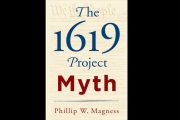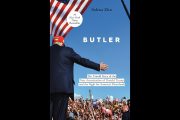Before the events in Ukraine throughout this past year, the publication of an English translation of a work written by an obscure Russian sociologist might have seemed of little interest to the Western world. However, when the sociologist in question is Alexander Dugin, who developed the neo-Eurasianist ideology that has influenced Vladimir Putin, and the book in question declares, “The American Empire should be destroyed,” and urges the acceptance of “mythic, sociological Marxism” as a key element of an ideology that aims at the destruction of that “empire,” one may only ignore The Fourth Political Theory at one’s peril.
The reviewer has written at length regarding the development and content of Dugin’s theological and ideological viewpoint. However, since Dugin’s book is intended to introduce the West to his overall ideology, a brief review of The Fourth Political Theory is certainly in order.
Dugin’s central thesis of his Fourth Political Theory is that the three great ideologies of the Modern Age — in his assessment, Liberalism, Fascism, and Socialism — have suffered varying degrees of a loss of legitimacy. Dugin declares that what is needed is a new, fourth political theory which fuses elements of each of the three prior ideologies to create something new. In Dugin’s words, “The brightest Russian minds clearly saw that the West was moving towards the abyss.… In this situation, Russia’s future completely relies on our efforts to develop the Fourth Political Theory.” However, Dugin maintains that his new ideology is not meant only for Russia, and he presents it as something that will be molded by “representatives of other cultures and peoples, both in Europe and Asia … since they sense the eschatological tension of the present moment just as acutely.” In other words, the Fourth Political Theory is intended to serve as the ideology of the new Eurasian Union. For Russia, in particular, Dugin appears to believe that the rise of his ideology is “that very ‘Event,’ unique and extraordinary, for which many generations of Russian people have lived and waited, from the birth of our nation to the coming arrival of the End of Days.”
Dugin’s identification of an “eschatological tension” leading to the “coming arrival of the End of Days” is a point of key significance to understanding his ideology. “Eschatology,” according to the Greek words from which it is derived, always deals with the study of last things. Thus, for example, in Christian terms, eschatology centers in the study of the second coming of Jesus and the Judgment. Ideologies have often been obsessed with eschatological concerns, such as Marxism’s final stage of Communism, Naziism’s millennialist “thousand year reich,” and Neoconservatism’s “end of history.” A carefully crafted eschatology is a fundamental aspect of the nature of an ideology because ideologies imagine an “end point” for their labors to reform humanity. As Russell Kirk observed in 1988, “Ideology, I venture to remind you, is political fanaticism: at best it is the substitution of slogans for real political thought.”
In the assessment of this reviewer, Dugin appears obsessed with the eschatological aspects of his ideology. Near the end of The Fourth Political Theory, Dugin declares:
The end times and the eschatological meaning of politics will not realise themselves on their own. We will wait for the end in vain. The end will never come if we wait for it, and it will never come if we do not. This is essential because history, time, and reality have special strategies to avoid Judgment Day, or rather, they have a special strategy of a reversionary manoeuvre that will create the impression that everyone has come to a realisation and an understanding.… If the Fourth Political Practice is not able to realise the end of times, then it would be invalid. The end of days should come; but it will not come by itself. This is a task, it is not a certainty. It is active metaphysics. It is a practice.
This reviewer first encountered Alexander Dugin in the pages of Mark Sedgwick’s 2004 book, Against the Modern World — Traditionalism and the Secret Intellectual History of the Twentieth Century (Oxford University Press). The ‘Traditionalist’ movement studied by Sedgwick is not easily defined in terms of its teachings; Sedgwick summarizes it briefly as taking ‘Tradition’ “primarily in this sense, as belief and practice transmitted from time immemorial — or rather belief and practice that should have been transmitted but was lost to the West during the last half of the second millennium A.D.” In point of fact, while ‘Traditionalists’ tend to be highly syncretistic in terms of their beliefs and generally mystical outlook, they are typically united by an anti-Western, anti-Modern sentimentality. As Sedgwick observes, across several decades spanning a period from sometime in the 1930s until the 1960s, “attempts were made to put the Traditionalist philosophy into practice, principally in two very different contexts: Sufi Islam, as an example of Oriental metaphysics, and European fascism, as a form of revolt.” The ‘Traditionalist’ context of Sufi Islam has been associated with René Guénon and that of European fascism with Julius Evola.
Throughout his intellectual career, Dugin has repeated proclaimed his adherence to the bizarre tenets of ‘Traditionalism,’ and in The Fourth Political Theory, he reiterates that ideological dependence: “I share the vision of René Guénon and Julius Evola, who considered modernity and its ideological basis (individualism, liberal democracy, capitalism, consumerism, and so on) to be the cause of the future catastrophe of humanity, and the global domination of the Western lifestyle as the reason for the final degradation of the Earth.” And Dugin’s promotion of his fourth political theory is marked by the darker aspects of Traditionalism spiritual syncretism:
Thus the Fourth Political Theory may easily turn towards everything that preceded modernity in order to draw its inspiration.… When it returns, postmodernity (globalisation, postliberalism, and the post-industrial society) is easily recognized as ‘the kingdom of the Antichrist’ (or its counterparts in other religions — ‘Dajjal’ for Muslims, ‘Erev Rav’ for the Jews, and ‘Kali Yuga’ for Hindus, and so forth). This is not simply a metaphor capable of mobilising the masses, but a religious fact — the fact of the Apocalypse.
As “globalisation” is “the kingdom of Antichrist,” Dugin identifies the United States as “the center of its expansion.” What is apparently needed to counter the “Antichrist” is Dugin’s theory brought into practice. “What is the manifestation of the Fourth Political Practice? It is a principle to be revealed. In what aspect is the myth realised as ritual? It becomes theurgic fact (let us recognise that Neoplatonic theurgy is the reanimation of statues). What is activity as mentality? It is the idea that thoughts are magic, that thoughts can change reality; it is the suggestion that thoughts replace reality as fact.”
Dugin’s link between his proposed political practice and theurgic magic is quite revealing, as is the apparent goal of replacing reality with magical thoughts. The first step of establishing the fourth political theory is to embrace “National Bolshevism”:
If we free socialism from its materialist, atheist and modernist features, and if we reject the racist and narrow nationalist aspects of the Third Way doctrines, we arrive at a completely new kind of political ideology. We call it the Fourth Political Theory, or 4PT, the first being liberalism, that we essentially challenge; the second being the classical form of Communism; and the third being National Socialism and fascism. Its elaboration starts from the point of intersection between different anti-liberal political theories of the past (namely Communism and the Third Way theories). So we arrive at National Bolshevism, which represents socialism without materialism, atheism, progressivism, and modernism, as well as the modified Third Way theories.…
The only thing that we insist on in creating such a pact of cooperation is to put aside anti-Communist, as well as anti-fascist, prejudices. These prejudices are the instruments in the hands of liberals and globalists with which they keep their enemies divided.
But then, Dugin also calls upon his readers to embrace chaos in rejection of logos: “Chaos can think. We should ask her how she does this. We have asked logos. Now it is the turn of chaos. We must learn to think with chaos and within the chaos.… To make an appeal to chaos is the only way to save logos. Logos needs a savior, it cannot save itself.” For 2,000 years, Christendom has known that the Logos — the Word — is the Savior; in the words of the Apostle John, “In the beginning was the Word, and the Word was with God, and the Word was God,” and “the Word became flesh and dwelt among us, and we beheld His glory, the glory as of the only begotten of the Father, full of grace and truth.” (John 1:1, 14 NKJV) For an ideologist who rails against “Antichrist” and speaks of the “End of Days,” an appeal to chaos as a “savior” for logos is the very definition of grotesque.
Alexander Dugin, The Fourth Political Theory, (London: Arktos, 2012) 211 pages. Paperback. $27.00.




